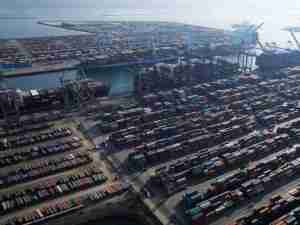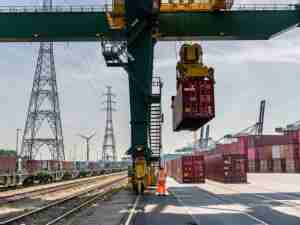The new harvesting season opened last week under a wide-ranging reform that includes increasing maximum mould and moisture levels for beans destined for export.
The aim is to improve the overall quality of Ivorian cocoa, which has declined during 12 years of sector liberalisation and is generally viewed as inferior to that of Ghana, Ivory Coast's neighbour and the world's number 2 producer.
The Coffee and Cocoa Council has fixed the maximum allowable mould level at 4 percent and the maximum moisture level at 8 percent at the point of export, up from 8 and 12 percent respectively in the 2011/12 season.
"Quality being one of the key elements of the reform, systematic inspections will be carried out at the entrances to cleaning factories," CCC director Massandje Toure said at the season launch last week.
"All loads arriving with a moisture level over 9 percent will be systematically rejected," she said.
Exporters complain, however, that the CCC has failed to follow through on plans to prepare farmers for the new regulations with education campaigns on plantations. As a result, they say, growers have not altered their practices.
"Their fermentation lasts two or three days instead of six, and the beans are often sold with too much moisture," said the director of a European exporter based in Abidjan.
"Many farmers have lost the habit of producing quality. It's going to take time before they get used to it again," he said.
This will create problems in the early months of a main crop harvest that is already off to a slow start due to exporters' delays in financing the middlemen responsible for collecting from the bush the bulk of Ivorian cocoa output.
No beans made it to the ports of Abidjan and San Pedro in the first week of the season. And although deliveries are expected to pick up towards the end of October or early November, they are likely to contain high ratios of beans that do not mean the new standards, exporters say.
"I think that in the first two months at least 30 to 40 percent of the volumes arriving at the ports will be rejected due to quality," said the director of another Abidjan-based export firm.
"That should fall to 10 to 20 percent beginning in January when the farmers will be more aware of the changes," he said.
Ivory Coast's main crop runs from early October to the end of March, with between 600,000 and 700,000 tonnes - or nearly half of annual production - delivered to ports from October to December.
Exporters who process their beans locally will not be subject to the quality regulations, raising the prospect that much of the sub-standard cocoa will be passed on to grinders while bean exporters will be left with supply shortages.
"If we all reject bad beans, the middle men will put pressure on the farmers, and that will change the behaviour of everyone," the purchasing director of a San Pedro-based company exporting beans said.
"It's something that is possible, but which requires time and solidarity to achieve," he said. (Reuters)










